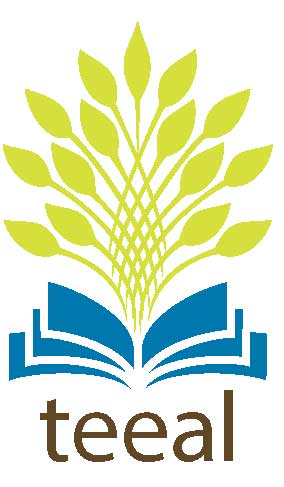This past March, The Essential Electronic Agricultural Library project at Mann Library released the latest and final upgrade to its iconic “Library in a Box,” a digital collection of top-quality life sciences journals produced for agricultural research and teaching institutions in developing countries around the world since 1999. This release marked both the 20-year anniversary of the TEEAL project and the onset of sunset operations to bring the project to a formal close. With the wrap-up, TEEAL’s partners are shifting towards the use of AGORA (Access to Global Online Research in Agriculture), a large online database of agricultural science developed by an international consortium known as Research4Life—and Mann Library is celebrating the fruitful conclusion of a landmark Cornell initiative in purpose-driven scholarship for human well-being around the world.

Supported by the Rockefeller Foundation, the Bill and Melinda Gates Foundation, and other funders, TEEAL has been stewarded over the past two decades by a dedicated project staff under the leadership of three Mann Library Directors—Jan Olsen (1987-1999), Janet McCue (1999-2008) and Mary Ochs (2008-present). During this time, the project evolved dramatically. In 1999, the inaugural “Library in a Box” that was shipped to TEEAL’s very first subscriber, the University of Zimbabwe, was made up of two large towers containing 172 compact discs storing a collection of articles from about 100 agricultural life science journals. Today, a palm-sized yet powerful Mini-ITX computer running Ubuntu provides access to a fully searchable collection comprised of over 600,000 articles in more than 500 high-research journals issued by over 100 publishers. TEEAL’s scope too has expanded significantly since inception to keep up with the increasingly interdisciplinary approach to solving problems in food and fiber production: In addition to agriculture, it now also covers fifteen related life science fields.
For the project’s final phase, TEEAL staff have been working with colleagues at Research4Life to ensure that researchers in partner institutions across the world can successfully move from retrieving journal articles from TEEAL’s “Box” to accessing materials online. Recent surveys and correspondence have confirmed that more and more TEEAL subscribers are able to make successful use of online resources thanks to increasingly reliable internet capabilities at their home institutions and AGORA’s widening availability. But the project has also been taking into account those institutions where internet infrastructure is more underdeveloped. With our colleagues at the Information Training and Outreach Centre for Africa (ITOCA), we identified a significant subset of subscribing institutions eligible to receive free final TEEAL upgrades. These partners—190 institutions in 58 countries where, geography and institutional need still pose significant obstacles to high-speed internet access for now—will be able to count on a fully subsidized and updated TEEAL collection and hardware to help bridge their eventual full transition to using online resources. Notes current Mann director Mary Ochs, “TEEAL proved wonderfully effective in using a self-contained digital library to connect agricultural researchers at our partner institutions to the highest quality life sciences information and data available. As the past two decades have seen more robust internet infrastructures established in many countries of the developing world, we are happy to now be moving forward with our partners into the even more promising future of accessible information made possible by fully online resources like AGORA.”

By the project’s final close, TEEAL will have provided final upgrades to about 230 institutions. The response received from these partners thus far has been inspiring. Evelyn Anambo, the College of Veterinary Science (CAVS) Librarian at the University of Nairobi (Kenya), wrote that TEEAL has been “a gem to our users.” Dr. Jean Mbomba of the Faculté des Sciences Agronomiques et Vétérinaires (FSAV)) at Loyola University of Congo in the Democratic Republic of Congo let TEEAL staff know that the new fully-subsidized TEEAL machine has been particularly timely. It will help meet the growing demand for access to teaching and research materials that came with the recent merger of several different institutes to form the new Faculté. And in the words of Ugandan agricultural librarian Onan Mulumba, who witnessed TEEAL’s full “CD tower to mini-computer” evolution at the College of Agricultural and Environmental Sciences of Makerere University:
“We shall always be grateful to Cornell University’s Albert R. Mann Library (and the entire staff), to ITOCA, and the Bill and Melinda Gates Foundation. The TEEAL project has really contributed a lot to academic and Research triumph at Makerere University. The office where I am sitting right now has a collection of hundreds of TEEAL compact disks, the initial form through which TEEAL was instituted. I will always remember TEEAL every time I look at them and [the] current database.”
